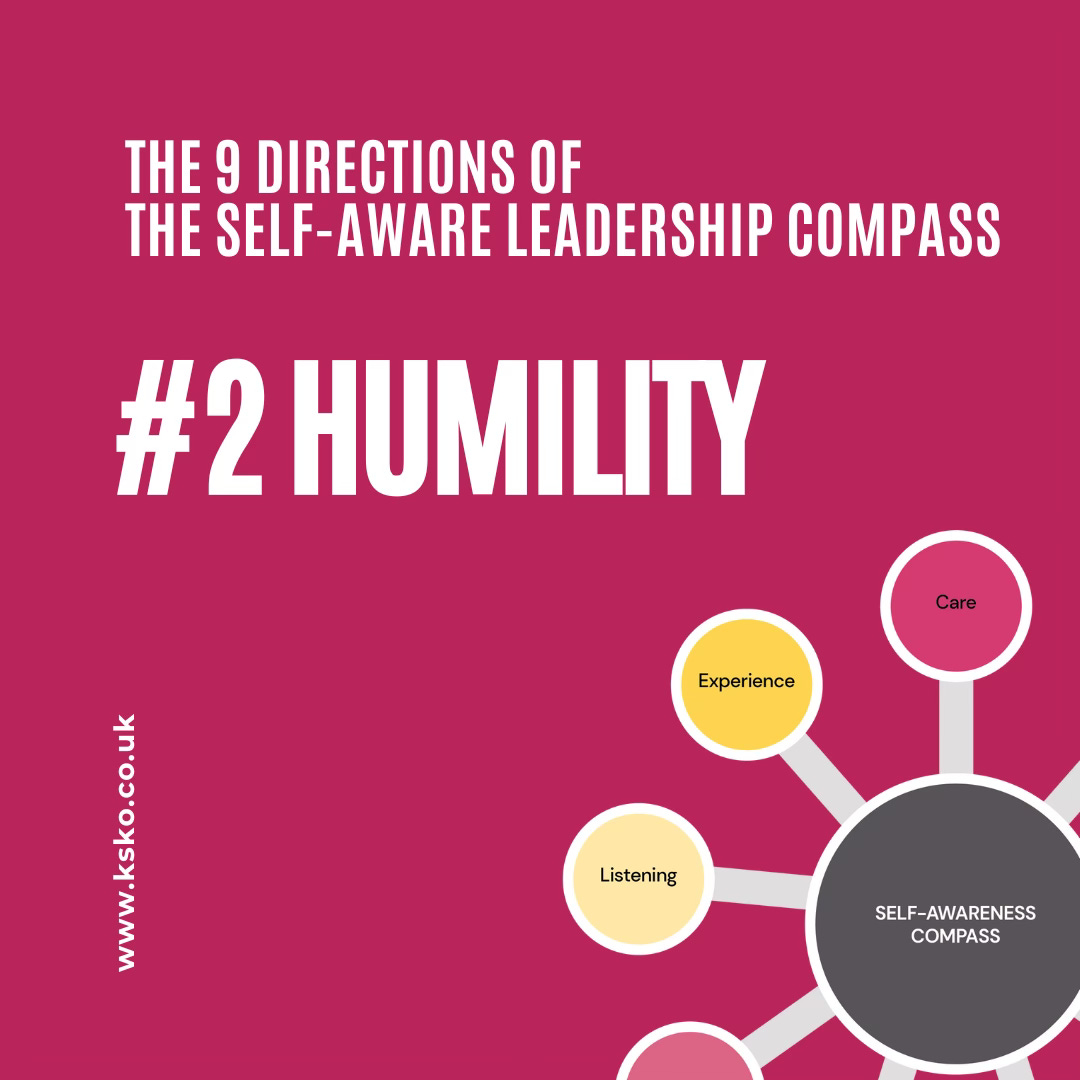Core Concepts: The Self-Aware Leadership Compass #2 - HUMILITY
Knowing Self-Aware Leadership Minimalistical
Hello KSKOers
Welcome to today’s Knowing Self-Aware Leadership minimalistical!
The first nine Knowing Self-Aware Leadership blog articles of 2025 are exclusive extracts from my book, The Self-Awareness Superhighway, focused on the nine directions of the self-aware leadership compass. Here’s the minimalistical all about humility. You can read the full article here
Looking forward to joining you on your learning journey!
Humility
“Humility (noun): Willingness to stay teachable regardless of how much you already know.”
Shining Wisdom
The nine core concepts from the article are:
Humility and Self-Awareness: Humility and self-awareness are closely connected. Both recognise the need to be aware of your strengths and weaknesses and being open to learning from others.
Humility in Leadership: Humble leaders encourage others, acknowledge their mistakes, and foster an environment of growth and collaboration. They demonstrate confidence in their own abilities while being open to vulnerability.
Humility vs. Ego: Humility is the opposite of arrogance, pride and ego. A self-aware leader doesn’t boast but lifts others, showing strength through their openness and willingness to learn.
Admitting Mistakes: Humility includes proactively admitting mistakes. Leaders who acknowledge their errors before others point them out foster trust, reduce ego-driven conflict, and encourage openness within their teams.
Humility and Vulnerability: Humility is often paired with vulnerability, as it requires leaders to show their fallibility and seek contributions from others to overcome limitations.
Encouraging Others to Shine: Humble leaders support their team members by recognising and nurturing their talents, creating a culture where others feel safe to make mistakes and contribute their ideas.
Confidence Through Humility: Humility is not a weakness but a sign of strength. Leaders who embrace humility are confident in their own competence and create an environment that’s conducive to learning and development.
Leadership and Integrity: Humility is also linked to integrity. Humble leaders act with honesty, admitting when they don’t know something, which enhances trust and opens doors to learning.
Creating a Humble Culture: Leaders need to foster a workplace where humility is valued. This encourages psychological safety, where team members feel secure in making mistakes, offering feedback, and growing together.
The Last Word
Humility is a cornerstone of effective leadership, fostering self-awareness, confidence and a culture of growth. By admitting mistakes, valuing others’ contributions and remaining teachable, leaders create environments of trust, collaboration and continuous learning. Embracing humility not only strengthens individual leadership but also empowers teams to thrive together.
Nia is an expert leader who talks the talk and walks the walk. She is an academically awarded thought leader in self-aware leadership and practices self-aware leadership every single day in her role as a Director in a Children’s Charity.
Find out more about Self-Aware Leadership by getting your very own copy of The Self-Awareness Superhighway! It’s an Amazon Best Seller in.....
🥇Business Management & Leadership
🥇Occupational & Organisational Psychology
🥇Business Careers









Echoing #2. I often say that phrases like "I don’t know" or "I was wrong" are among a CEO’s most powerful tools.